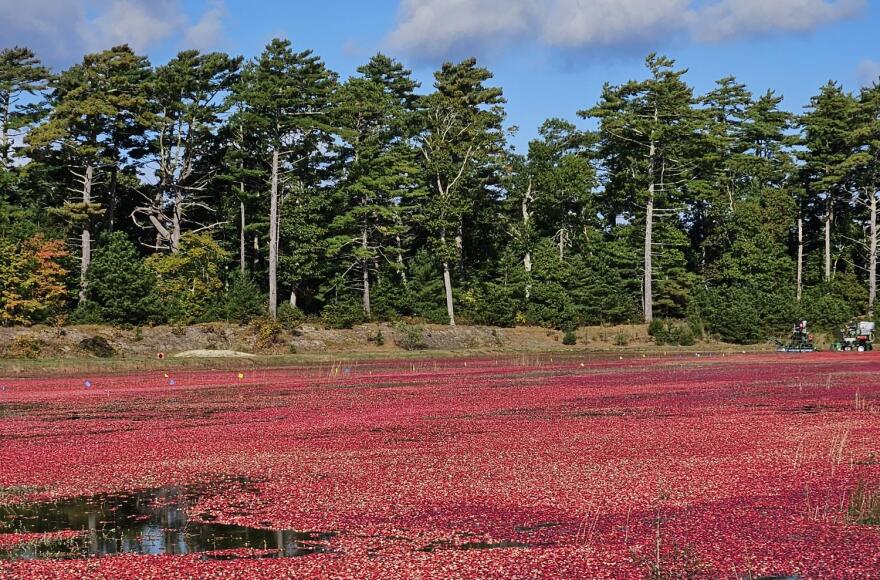The effects of climate change have delayed the cranberry harvest at local bogs.
That’s according to Hilary Sandler, Director at UMass Cranberry Station in Wareham.
Sandler said warm temperatures the region saw in September led to the station having its harvest last week, later than usual.
She said some berry picking started last month, but last week was the first full week for local growers.
"Normally, we'll start picking September 10th, and I don't think people really got picking maybe until the 20s. And growers were really being selective and going and finding those very early-ripening varieties," Sandler said.
She said cranberries need the cool nighttime fall temperatures to gain their red color.
“So, we’ve been waiting for color, and that’s always balanced with [the fact that] the longer the fruit are on the vine, the more rot you’re going to get. So, it’s always a very anxious time."
Hot July temperatures over 85 degrees also affected cranberry growth.
This year’s state crop is forecasted to be a little under 2 million barrels, down about 1% from the year before.
Cranberries are Massachusetts’ biggest food crop, with a yearly crop value at about $73 million.
Sandler said many local cranberry growers work another job in addition to farming. Some do their farming at night or enlist family and friends to help.
The Cranberry Station found growers would need about 80 acres to make enough money to sustain themselves, but most own fewer than 20.
Sandler said some of the growers she’s worked with are 4th or 5th generation.
"They want to keep it going because it’s who they are and what they do," she said. "I think if growers could just be growers full-time and make it happen, probably a lot of them would do that.”
Sandler says thin profit margins and weather-related risks aren’t unique to growing cranberries, but are faced by all farmers.






